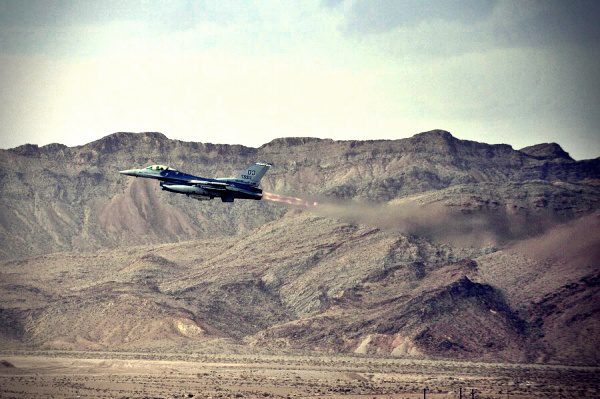Overview of discovery and expert assistance in a military court-martial
- Appointment and Production of Expert Assistance
- Appointment and Production of Expert Witnesses
- Discovery and trial advocacy
- Defense Discovery Responsibilities and Requests
- Disclosures or notices made upon government request (not based on reciprocity)
- Mandatory disclosure or notice requirements for defense counsel
- Disclosures made upon government requests (based on reciprocity)
- Discovery in the Military Justice system
- Government requests for discovery
- Mandatory disclosure or notice requirements for trial counsel
- Introduction to discovery in the military
- Duty to preserve evidence
- Enforcement
- Regulation of production of witness and evidence under the UCMJ
- Regulation of Discovery
- Protective and modifying orders
- Remedies for Nondisclosure
Overview of Discovery in the Military Justice System
RCM 703 provides that “[t]he prosecution and defense and the court-martial shall have equal opportunity to obtain witnesses and evidence, including the benefit of compulsory process.” This rule is based on Article 46, UCMJ and implements the accused’s Sixth Amendment right to compulsory process.
Merits witnesses
Each party is entitled to production of any witness whose testimony on a matter in issue on the merits or on an interlocutory question would be relevant and necessary. RCM 703(b)(1).
Necessary means the evidence is not cumulative and would contribute to a party’s presentation of the case in some positive way on a matter in issue. RCM 703(b)(1) discussion. A matter is not in issue when it is stipulated as a fact.
Sentencing witnesses
Each party is entitled to the production of any witness whose testimony on sentencing is required under RCM 1001(e). RCM 703(b)(2).
There is much greater latitude during the presentencing proceeding to receive information from means other than the testimony of witnesses in the courtroom. RCM 1001(e)(1).
Evidence
Each party is entitled to production of evidence that is relevant and necessary. RCM(f)(1).
Necessary means the evidence is not cumulative and would contribute to a party’s presentation of the case in some positive way on a matter in issue. RCM 703(f)(1) discussion. A matter is not in issue when it is stipulated as a fact.
How the military discovery process works
- The parties identify the witness or evidence that they want produced.
- The defense submits its requests to the trial counsel.
- If the trial counsel contends that some defense witnesses or evidence do not satisfy the production standards
- The trial counsel tells the defense.
- The military defense lawyers may file a motion for production with the military judge.
- The military judge rules on production.
- The trial counsel then arranges for the presence of those required witnesses and that evidence, to include prosecution witnesses and evidence.
- The trial counsel arranges for orders or subpoenas of witnesses, depending on the witnesses’ status.
- The trial counsel arranges for requests or subpoenas for evidence, depending on who controls the evidence.
Procedures of for producing evidence and witnesses in a court-martial
Producing witnesses in a court-martial
Military Personnel:
Request that the witness’ commander issue any necessary orders. RCM 703(e)(1).
Civilian Witnesses:
Subpoena. RCM 703(e)(2).
Use for trial or depositions but not for pretrial interviews or Article 32 investigations. RCM 703(e)(2)(B) discussion.
Issued by the trial counsel. RCM 703(e)(2)(C).
Use DD Form 453. See the content requirements of RCM 703(e)(2)(B) and follow the requirements of RCM 703(e)(2).
Producing evidence in a court-martial
Evidence is under the control of the government. Trial counsel notifies the custodian of the evidence of the time, place, and date evidence is required and requesting custodian to send or deliver the evidence. RCM 703(f)(4)(A).
Evidence not under control of the government.
Subpoena. RCM 703(f)(4)(B).
Production standards for the defense
Witnesses. RCM 703(c)(2).
The defense shall submit to the trial counsel a written list of the witnesses that the defense wants the government to produce.
Merits and interlocutory questions. Requests shall include:
- A synopsis of the expected testimony sufficient to show its relevance and necessity.
- The contact information found in RCM 703(c)(2)(B)(i). See, e.g ., United States v. Barreto , 57 M.J. 127 (C.A.A.F. 2002)
Sentencing. Requests shall include:
A synopsis of the expected testimony and why personal appearance is necessary under the standards set forth in RCM 1001(e).
Personal appearance is required only if all of the below are satisfied:
- The testimony is necessary for consideration of a matter of substantial significance to a determination of an appropriate sentence.
- The weight or credibility of the testimony is of substantial significance to the determination of an appropriate sentence.
- The other party refuses to enter into a stipulation of fact.
- Other forms of evidence (depositions, interrogatories, former testimony, testimony by remote means) would not be sufficient in the determination of an appropriate sentence.
- The significance of the personal appearance to the determination of an appropriate sentence, when balanced against the practical difficulties of producing the witness, favors production.
- See RCM 1001(e)(2)(E) for a list of factors related to this balancing test.
The contact information found in RCM 703(c)(2)(B)(ii).
Evidence. RCM 703(f)(3)
Defense requests for evidence shall:
- List the items of evidence to be produced, and
- Must include a description of each item sufficient to show its relevance and necessity.
- Must include a statement of where it can be obtained; and, if known, the name, address, and telephone number of the custodian of the evidence.
Generally, the government has no responsibility to create records to satisfy demands for them. United States v. Birbeck , 35 M.J. 519, 522 (A.F.C.M.R. 1992) (military judge did not err in denying defense request for the government to create laboratory reports on two negative urinalysis). The court used “discovery” language rather than “production” language. If the government will not produce a report, the defense can seek the employment of an expert witness, who can then test the evidence and produced a report. See, e.g ., United States v. Walker , 66 M.J. 721 (N-M. Ct. Crim. App. 2008).
Production standards for the prosecution
Witnesses
The trial counsel shall obtain the presence of witnesses for the prosecution whose testimony the trial counsel considers relevant and necessary. RCM 703(c)(1).
Evidence
The trial counsel shall obtain evidence that the trial counsel considers relevant and necessary. RCM 703(f)(3), relating back to RCM 703(c)(1).


